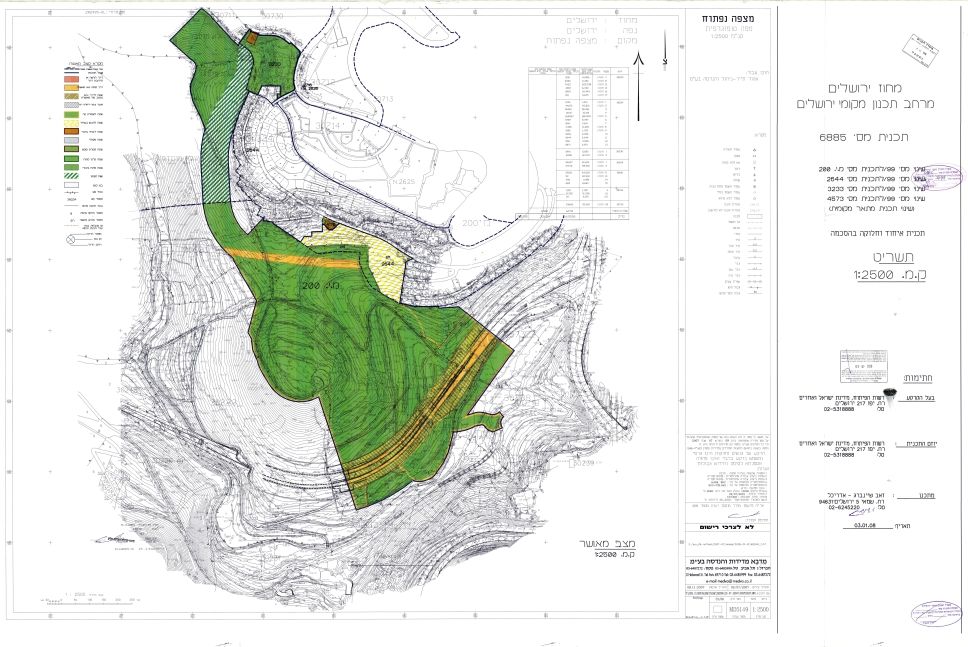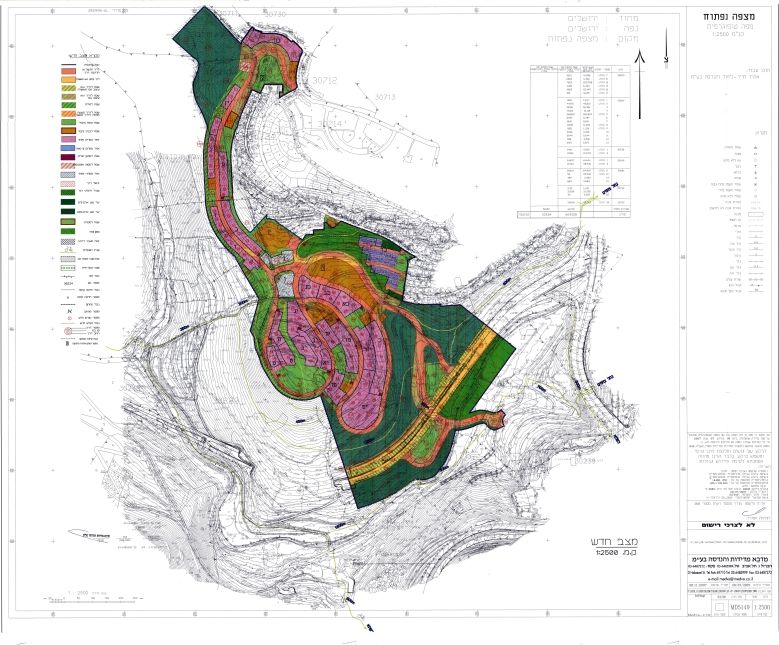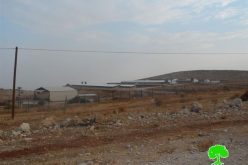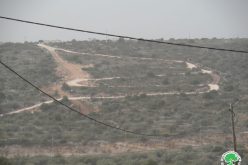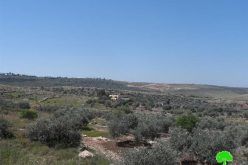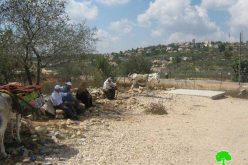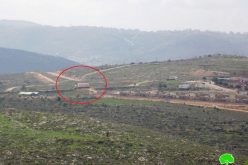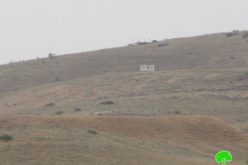The Israeli occupation municipality in Jerusalem deposited a master plan for a new project that aims at expanding Ramot colony. The new project was named "Ramot Slopes" and held the number ((رقم ق.م.ل/1012. Noteworthy, the plan included the construction of 1435 colonial units and 240 private residential units on 419 dunums relative to the depopulated villages of Lifta and Beit Iksa.
The plan was featured in Al-Sunarah newspaper and mentioned that specific areas will be designated to construct buildings, institutions, commercial complexes, transportation centers in addition to opening roads. The areas are detailed as follows:
- Areas for residential construction classification "B" : 153.915 m2
- Areas for residential construction classification "C" :124.070 m2
- Area for protected residential construction : 24.805 m2
- Area for commercial construction: 50513 m2
- Area for architectural construction: 505 m2
- Area for public buildings: 35.570 m2
- Area for transportation center: 25 m2
On the 13th of April 2016, the so-called Jerusalem Municipality’s Local Committee for Planning and Construction approved the plan proposed by the Jerusalem Municipality and in cooperation with Ramot settlement community council and the “Ramot for the Environment” organization for turning the green space of the so called “ Mitzpe Naftuah” near Ramot settlement north of Jerusalem city into an open communal forest for educational, culture, recreation, and tourism that aims at preserving and cultivating the green space in the area. The Municipality’s plan comes in opposition to the program advanced by the National Committee for Housing-Preferential Zones in Jerusalem which calls for the construction of a new residential neighborhood instead.
Lifta Sons Society in addition to Beit Iksa village council sought Adala "justice" and Local Collation for Jerusalemites'' Rights in order to object to the plan in Planning and Construction Committee- Israel Civil Administration.
Adala mentioned the following in objection to the plan in Planning and Construction Committee- Israel Civil Administration: " The plan is to be implemented on occupied lands. Thus it must be stopped. International law charges Israel with the responsibility to maintain vital needs of Palestinians without making any major changes in the area such like confiscation for political purposes. Such a plan violates the refugees' rights of Beit Iksa and Lifta villages and changes the demographic fabric of the area through expanding Ramot colony, which violates the core of International Humanitarian Laws".
It should be marked that such an Israeli plan violates international laws, Geneva Fourth convention, and the Universal Declaration of Human Rights, which consider Lifta and Beit Iksa villages as part of the West Bank of the Palestinian authority.
It is reported that Israeli Occupation Forces imposed a segregation on Beit Iksa village through establishing a segment of the apartheid wall that starts in the village and reaches out Beit Surik and Biddu villages in Jerusalem. The village became a big prison and its lands became a colonial interest since isolated behind the wall.
Citizens of Beit Iksa showed concerns to the human Rights researcher that Israeli occupation authorities would annex the village to the Jerusalem and isolate it from its periphery.
Beit Furik farmers sitting next to apartheid fence with a view of HaRadar colony in the background
Land Research Center sees Israel continuous expansion on colonies in the West Bank and Jerusalem at the expense of Palestinian and lands a flagrant violation of Human Rights and all international laws and conventions, which prohibit disposition of public properties in occupied countries.
UN Security Council Resolution 242 of 1967: calls for
- the Withdrawal of Israel armed forces from territories occupied in the recent conflict;
- Termination of all claims or states of belligerency and respect for and acknowledgment of the sovereignty, territorial integrity and political independence of every State in the area and their right to live in peace within secure and recognized boundaries free from threats or acts of force." [4]
UN Security Council Resolution 449 of 1979: the Security Council determined:
- "that the policy and practices of Israel in establishing settlements in the Palestinian and other Arab territories occupied since 1967 have no legal validity and constitute a serious obstruction to achieving a comprehensive, just and lasting peace in the Middle East"
UN Security Council Resolution 452 of 1979: states that
- "the policy of Israel in establishing settlements in the occupied Arab territories has no legal validity and constitutes a violation of the Fourth Geneva Convention relative to the Protection of Civilian Persons in Time of War of 12 August 1949" and "calls upon the Government and people of Israel to cease, on an urgent basis, the establishment, construction and planning of settlements in the Arab territories occupied since 1967, including Jerusalem."
UN Security Council Resolution 465 of 1980:
- It expressed concern at Israeli settlement policy in the Arab territories and recalled resolutions 237 (1967), 252 (1968), 267 (1969), 271(1969) and 298 (1971). It further called upon the State and people of Israel to dismantle such settlements. The resolution calls on all states ‘not to provide Israel with any assistance to be used specifically in connection with settlements in the occupied territories’.
Prepared by
The Land Research Center
LRC



